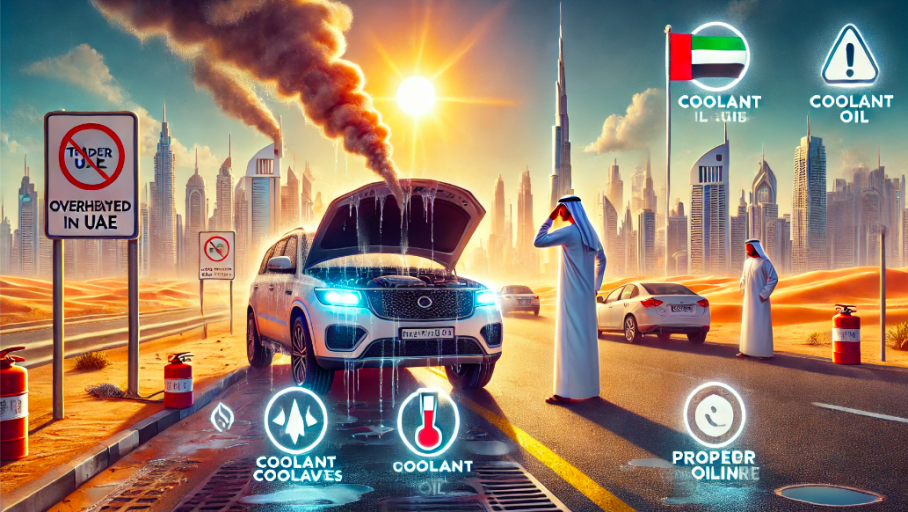

Why Engine Overheating Is Common in the UAE (and How to Prevent It)
Article:
The UAE’s harsh desert climate, especially during peak summer months, can be brutal not just on people—but on vehicles too. One of the most common car problems drivers in Dubai and across the UAE face is engine overheating. Whether you’re driving a luxury brand like BMW, a performance-focused Toyota Supra, or an everyday commuter Nissan Sunny, no car is immune to high engine temperatures under extreme conditions.
Understanding the causes and knowing how to prevent overheating can save your engine from damage, reduce repair bills, and keep your ride running smoothly—especially when browsing or maintaining used cars in Dubai.
Why Does Engine Overheating Happen in the UAE?
There are several reasons overheating is more prevalent in this region:
1. Extreme Temperatures
During the UAE summer, ambient temperatures often exceed 45°C. This puts an immense strain on the cooling system. If it's not functioning properly, it can’t cool the engine fast enough, leading to overheating.
2. Heavy Traffic and Idling
In Dubai’s busy roads, frequent idling in traffic jams, especially with the AC on full blast, leads to reduced airflow to the radiator and a rapid rise in engine heat.
3. Neglected Maintenance
A lot of used cars for sale in Dubai may not have had consistent servicing. Old coolant, clogged radiators, worn-out belts, and low fluid levels are all culprits behind rising engine temperatures.
4. Driving Habits
Aggressive driving, towing heavy loads, or frequent short-distance trips in the heat can put extra pressure on the engine and lead to higher temperatures, particularly in performance cars or SUVs like the Land Cruiser or Range Rover.
How to Prevent Engine Overheating in the UAE
Preventing your engine from overheating starts with smart car care and regular check-ups—especially important when owning or purchasing a used car in Dubai.
? 1. Regular Cooling System Checks
Flush the radiator and replace the coolant every 1–2 years. Make sure your coolant level is always within the recommended range and that there are no leaks.
? 2. Inspect Radiator & Hoses
Look for signs of wear, cracking, or leaks. Replace old radiator hoses before they burst under pressure—this is a very common cause of overheating in used vehicles.
? 3. Replace Engine Oil Regularly
Engine oil also helps to cool the engine. Dirty or old oil can reduce cooling efficiency, especially during Dubai summers.
? 4. Check the Thermostat
If your thermostat isn’t opening properly, it restricts coolant flow. This is a quick, inexpensive part to replace but vital for maintaining temperature control.
? 5. Monitor the Temperature Gauge
Keep an eye on the dashboard. If the needle starts to creep toward the red zone, pull over immediately, turn off the engine, and let it cool down.
? 6. Get a Pre-Purchase Inspection
When buying a used car in the UAE, make sure it’s inspected for coolant system issues, especially if it’s a high-mileage vehicle. Trusted platforms like Auto Trader UAE can help connect buyers with vetted sellers.
What to Do if Your Engine Overheats
Stay Cool with Auto Trader UAE
With temperatures soaring, it’s vital to ensure the car you drive—or plan to buy—is fit for UAE conditions. At Auto Trader UAE, you can browse a wide selection of used cars in Dubai, from efficient commuters to rugged SUVs, all with details to help you make an informed decision. Whether you're eyeing a Toyota Camry, a Ford Explorer, or a Mercedes-Benz, choose a vehicle built to handle the UAE heat.